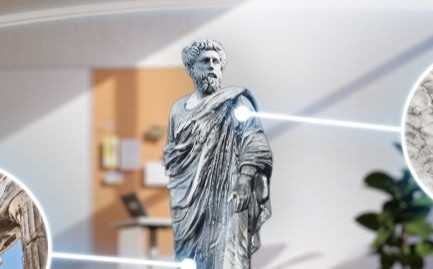Diversity and Inclusion Spaces in Higher Education
Colleges and universities are responsible for creating a sense of belonging for underrepresented, marginalized, and under-resourced students at their campuses. Students of all races, genders, and ethnicities should feel at home at the college of their choice. To make this a campus-wide priority, college faculty needs to be aware of whom they are hiring and how they are exemplifying diversity and inclusion within their student population. Rider University in Lawrenceville, New Jersey, and Bucknell University in Lewisburg, Pennsylvania have created dedicated diversity and inclusion spaces at their campuses so all students have a safe space to feel welcomed and understood.
Diversity and Inclusion at Rider University
In September 2020, Rider opened a new space in the Bart Luedeke Center dedicated to the University’s Center for Diversity and Inclusion. The Center is a cornerstone of Rider’s efforts to cultivate a welcoming climate for its vibrant, diverse community.
“Our hope for the Center is twofold: that it promotes a sense of belonging for students inclusive of all of who they are, and that the engagement and education reaches every Rider student as they develop an understanding of how to lead in a diverse and changing world,” says Dr. Leanna Fenneberg, vice president for student affairs.
"It was important for the process of envisioning the space to include multiple perspectives from members of the community," Fenneberg says. “We engaged over 100 students, faculty, staff, and alumni in various focus groups and planning discussions to assure the space captured the needs of current students and multicultural student organizations."
Diversity and Inclusion at Bucknell University
The Center for the Study of Race, Ethnicity & Gender (CSREG) at Bucknell University supports faculty development, scholarship, interdisciplinary exchange and collaboration on issues of race, ethnicity, and gender as well as their intersections with other aspects of difference (for example, class, sexuality, and nationality).
Recognizing that critical engagement with issues of race, ethnicity, and gender is essential to understanding the 21st-century world, the center serves as the administrative home for the minor in Race & Ethnicity Studies at Bucknell and also offers faculty various enrichment opportunities.
"No matter where a student falls on the diversity continuum, more diverse environments produce more opportunities for understanding and critical thinking." - Southern Nazarene University
Diversity Prepares Students for the Real World
To succeed in jobs, relationships, and communities, it is important to understand how cultural norms influence communication. Understanding the value of many different perspectives and life experiences is what pushes our society forward. Students who do not have experience communicating and working with diverse people may be at a distinct disadvantage at every stage of the professional world. For example, they may not know how to communicate properly in the workplace or they may not be able to collaborate well with a team. Students who have experience on diverse campuses will go into their careers understanding that not everyone is like them.
Underrepresented students will benefit from diversity and inclusion environments because they will be less likely to experience microaggressions and discrimination. They will have more opportunities to collaborate with people who look and think like them but could also get the chance to branch out and work with people who may not share their experiences.
Offering a Diversity and Inclusion Space at Your University
If you work at a college or university and your school doesn’t have a safe space for all races, genders, and ethnicities, now is the time to create one. The goal of a safe space is to provide a place where students are not subject to discrimination and criticism from the outside world. Faculty with experience in inclusion and diversity should be the leaders in creating this safe space and should ask for feedback from students. Every college campus should make this a priority so that all students can have a positive higher education experience.





















